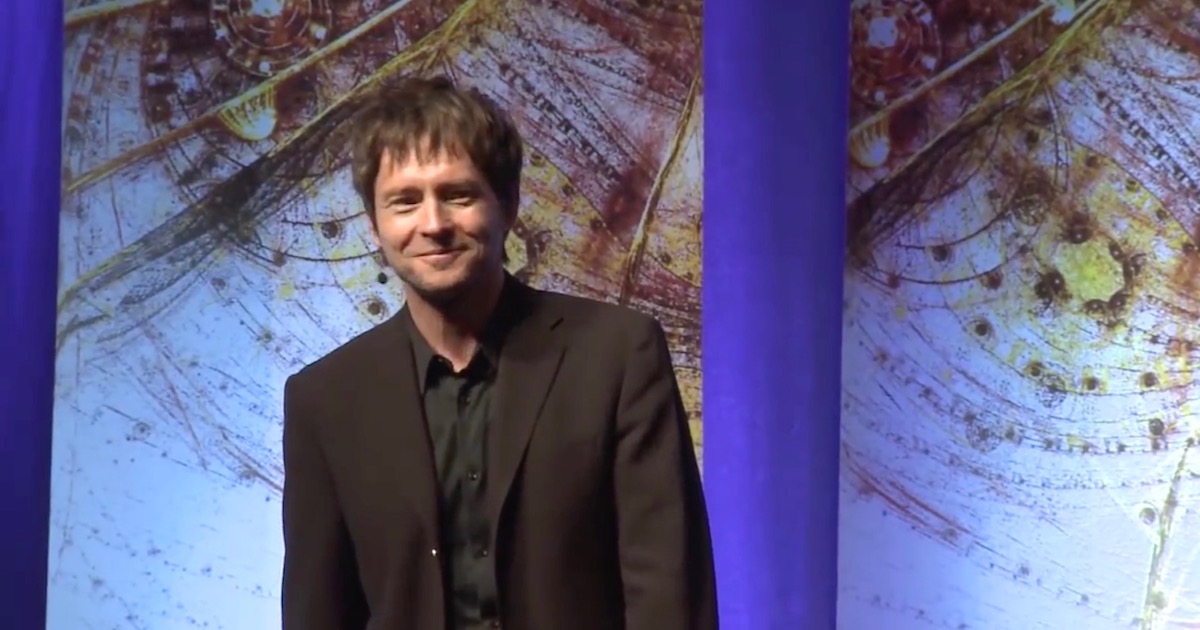 Intelligent Design
Intelligent Design
How to Celebrate Pi Day? The Intelligent Design Way
It’s Pi Day, March 14, i.e. 3/14. Get it, π? Ha ha, very cute. How to celebrate? Contemplate the way math points to a reality beyond our physical realm, not entirely dissimilar to the way biology does.
For a start, do yourself a favor and watch Berkeley mathematician Edward Frenkel on “Mathematics as Hidden Reality” (click on the image above). He discusses the mystery and sublimity of numbers. What a wonderful and passionate character!
You can also listen to mathematician David Berlinski, another sublime character, here and here in a podcast conversation. The interviewer is our old Discovery Institute colleague Casey Luskin, talking about “The Nature of Numbers.”
Go back and read our review of Berlinski’s beautiful little book, One, Two, Three: Absolutely Elementary Mathematics. Berlinski
returns again and again to the allusiveness of numbers and the operations we perform on them. They allude, they point to, they gesture to something beyond themselves. Just what that might be, of course — of course, if you know anything about David Berlinski — Berlinski won’t say.
In that respect, Dr. Berlinski is on the same page as Dr. Frenkel. The latter has said in an interview with The Economist:
Does maths exist without human beings to observe it, like gravity? Or have we made it up in order to understand the physical world?
I argue, as others have done before me, that mathematical concepts and ideas exist objectively, outside of the physical world and outside of the world of consciousness. We mathematicians discover them and are able to connect to this hidden reality through our consciousness. If Leo Tolstoy had not lived we would never have known Anna Karenina. There is no reason to believe that another author would have written that same novel. However, if Pythagoras had not lived, someone else would have discovered exactly the same Pythagoras theorem. Moreover, that theorem means the same to us today as it meant to Pythagoras 2,500 years ago.
So it’s not subject to culture?
This is the special quality of mathematics. It means the same today as it will a thousand years from now. Our perception of the physical world can be distorted. We can disagree on many different things, but mathematics is something we all agree on.
The only reason the theory means the same is that it describes the reality of the physical world, so mathematics must need the physical world.
Not always. Euclidian geometry deals with flat spaces, such as the three-dimensional flat space. For millennia people thought we inhabited a flat, three-dimensional world. It was only after Einstein that we realised we lived in a curved space and that light doesn’t travel in a straight line but bends around a star. Pythagoras’ theorem is about geometric shapes in an idealised space, a flat Euclidian plane which, in fact, is not found in the real world. The real world is curved. When Pythagoras discovered his theorem there were, of course, inferences from physical reality, and a lot of mathematics is drawn from our experience in the physical world, but our imagination is limited and a lot of mathematics is actually discovered within the narrative of a hidden mathematical world. If you look at recent discoveries, they have no a priori bearing in physical reality at all.
The naïve interpretation that mathematics comes from physical reality just doesn’t work. The other interpretation that mathematics is a product of the human mind also has serious issues, because it seems clear that some of these concepts transcend any specific individual.
Now meditate on what Nobel Prize-winning physicist Eugene Wigner writes in a famous essay, “The Unreasonable Effectiveness of Mathematics in the Natural Sciences.” He says about math and evolution:
The great mathematician fully, almost ruthlessly, exploits the domain of permissible reasoning and skirts the impermissible. That his recklessness does not lead him into a morass of contradictions is a miracle in itself: certainly it is hard to believe that our reasoning power was brought, by Darwin’s process of natural selection, to the perfection which it seems to possess. However, this is not our present subject.
And for dessert, listen to pi, played on a piano. It’s quite lovely.
Math, as we’ve noted before, is a next frontier for ID. Enjoy your Pi Day.

